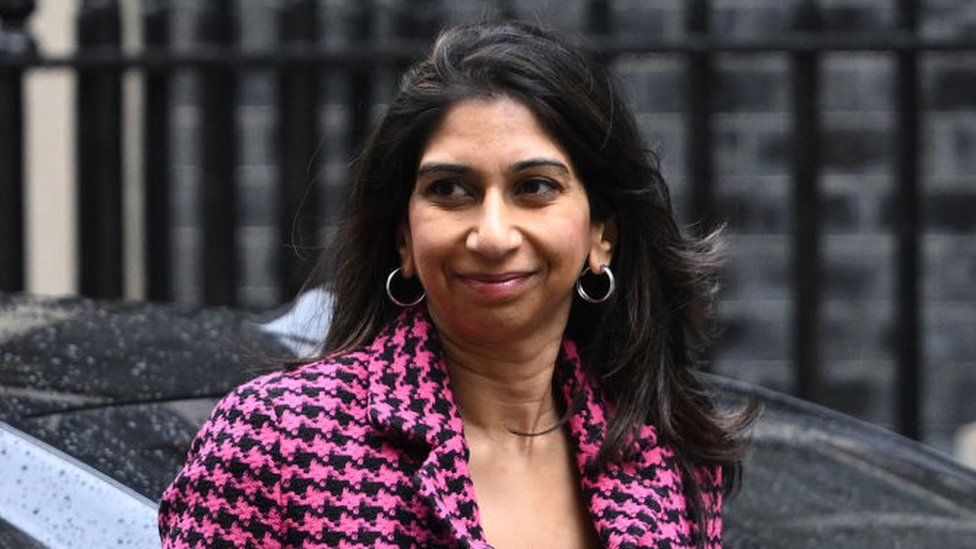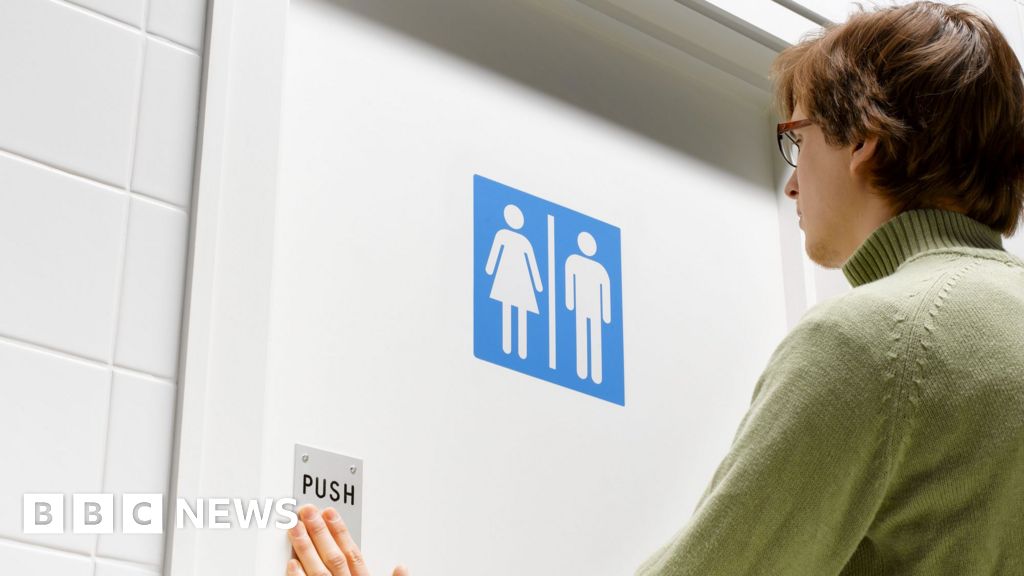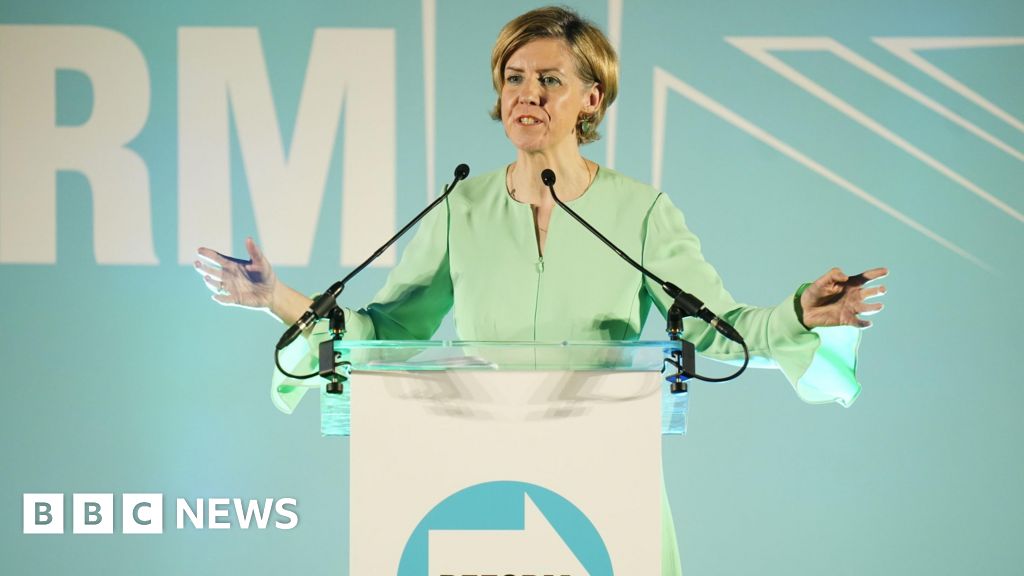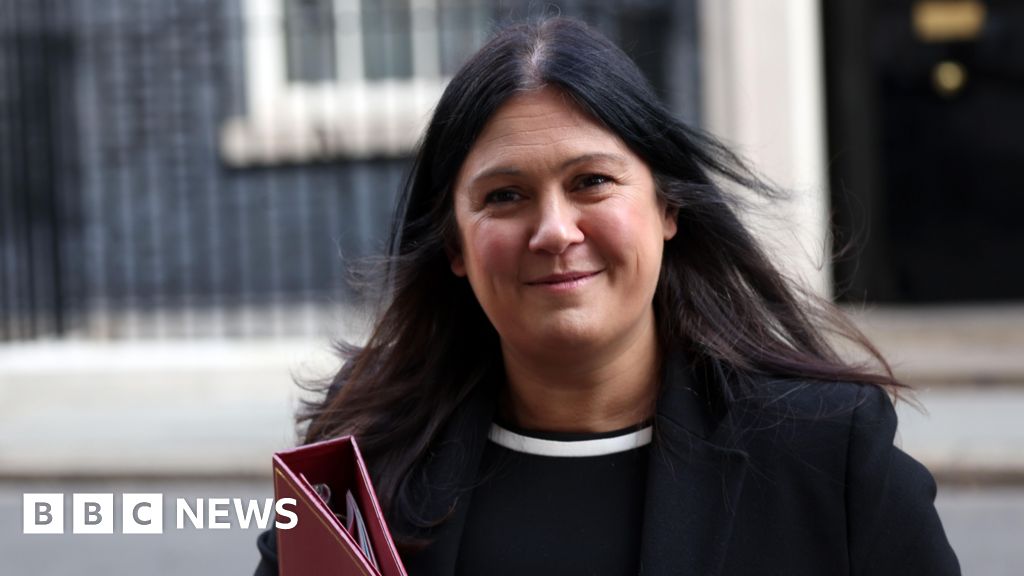ARTICLE AD BOX
 Image source, Getty Images
Image source, Getty Images
By Becky Morton
Political reporter
Suella Braverman has said the pressure on public services from migration is "unsustainable", after figures estimated record levels last year.
The former home secretary said the government must "act now" to cut the numbers coming to the UK.
Net migration - the difference between the number of people coming to live in the UK and those leaving - was a record 745,000 last year, ONS figures show.
No 10 said migration was "far too high" but it was acting to bring it down.
The prime minister's official spokesman said this included clamping down on dependants of students coming to the UK and increasing visa costs.
But Mrs Braverman, who was sacked from her cabinet role last week, said the record figures were "a slap in the face to the British public who have voted to control and reduce migration at every opportunity".
She added: "The pressure on housing, the NHS, schools, wages, and community cohesion, is unsustainable. When do we say: enough is enough?"
As home secretary, Mrs Braverman said she had called for measures including an annual cap on net migration, closing the graduate visa route, and a cap on health and social care visas.
"Brexit gave us the tools. It's time to use them," she added.
Other Tory MPs, including former cabinet ministers Sir Jacob Rees-Mogg and Sir Simon Clarke, have also called for more action to bring down migration.
The New Conservatives group, which is on the right of the party, described the issue as "do or die" for the party.
"Each of us made a promise to the electorate. We don't believe that such promises can be ignored," the group, led by Miriam Cates, Danny Kruger and Sir John Hayes, said in a statement.
Back in 2010, Lord David Cameron, the former Tory PM who was appointed foreign secretary in last week's reshuffle, pledged to get net migration below 100,000 - but the commitment has never been met.
The party's 2019 manifesto also promised to bring overall numbers down, without setting a specific target, after the introduction of post-Brexit border controls.
It is understood the government is considering some new measures to cut migration, including:
- Limiting to one the number of relatives that health and social care workers are allowed to bring with them
- Raising the minimum salary threshold for work visas
- Abolishing the system allowing employers to pay less where there are recognised shortages
Figures published by the Office for National Statistics (ONS) earlier on Thursday revised up previous estimates for net migration for 2022 from 606,000 to 745,000.
It cautioned its estimates could be revised again - and provisional figures to June of this year suggest the rate of net migration may now be slowing.
Statisticians said in the year to June net migration fell back to 672,000, after 1.2 million people came to live in the UK for at least a year, and 508,000 left.
However, the ONS said it was too early to know whether the latest falling net migration figure was the start of a downward trend.
The vast majority (968,000) arriving were from countries outside the European Union.
Students accounted for the largest group of non-EU migrants, which was also true last year.
But there has been an increase in workers arriving with visas to fill chronic staff shortages in the NHS and social care, the ONS said.
Arrivals of people via humanitarian routes have fallen from 19% to 9% over the same period, the ONS added, with most of these made up of Ukrainians and British Nationals (Overseas) arrivals from Hong Kong.
Home Secretary James Cleverly said the government remained committed to reducing levels of legal migration, as well as eliminating abuse of the visa system.
He said the ONS figures did not show a "significant increase from last year's figures" and pointed to "a number of important and positive changes" affecting them.
"The biggest drivers of immigration to the UK are students and healthcare workers - [they] are testament to both our world-leading university sector and our ability to use our immigration system to prioritise the skills we need," he said.
Labour leader Sir Keir Starmer said "shockingly high" net migration represented "a failure not just of immigration, but also of asylum and of the economy".

 1 year ago
35
1 year ago
35








 English (US) ·
English (US) ·